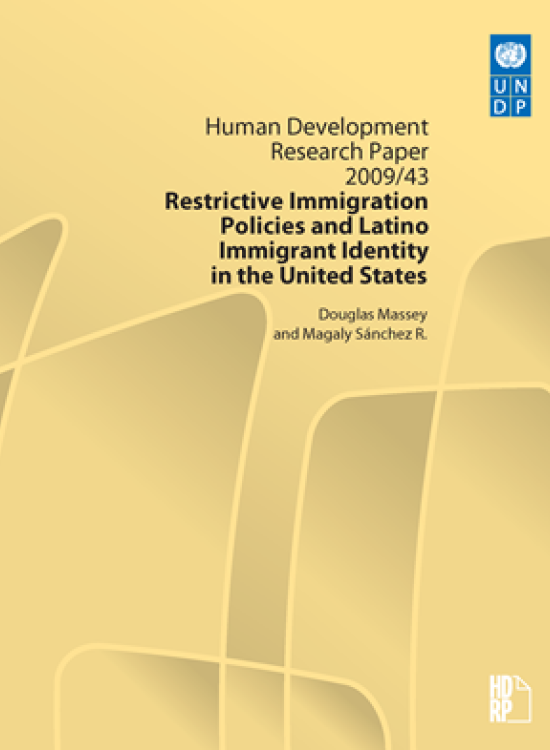Restrictive Immigration Policies and Latino Immigrant Identity in the United States

Download Report by Language
Document
hdrp200943.pdf
(301.4 KB)
Citation
Massey, Douglas, Sánchez R., Magaly. 2009. Restrictive Immigration Policies and Latino Immigrant Identity in the United States. New York.
Restrictive Immigration Policies and Latino Immigrant Identity in the United States
Posted on: January 01, 2009
The United States is presently characterized by rising anti-immigrant sentiment, repressive immigration enforcement, and the negative framing of Latinos as threatening and undesirable. As a result, social boundaries between immigrants and natives have hardened and boundary crossing has become more difficult. Under these circumstances, the prediction of classical assimilation theory is turned on its head: the more time that immigrants spend in the United States and the more contact they have with Americans and American society, the more aware they become of the harsh realities of prejudice and discrimination and the more they come to experience the rampant inequalities of the secondary labor market. Rather than ideologically assimilating, therefore, the greater their experience in the United States, the more likely immigrants are to express a reactive ethnicity that rejects the label “American.” Our work suggests that the greatest threat to the successful assimilation of immigrants comes not from foreign involvements or transnational loyalties, but from the rejection, exclusion, and discrimination that immigrants experience in the United States.